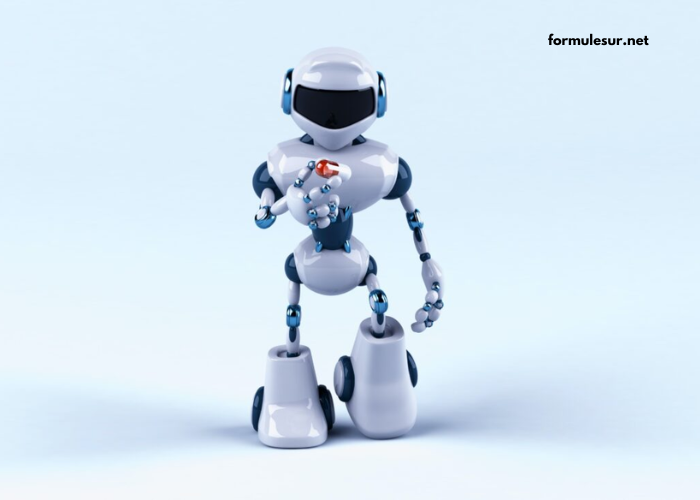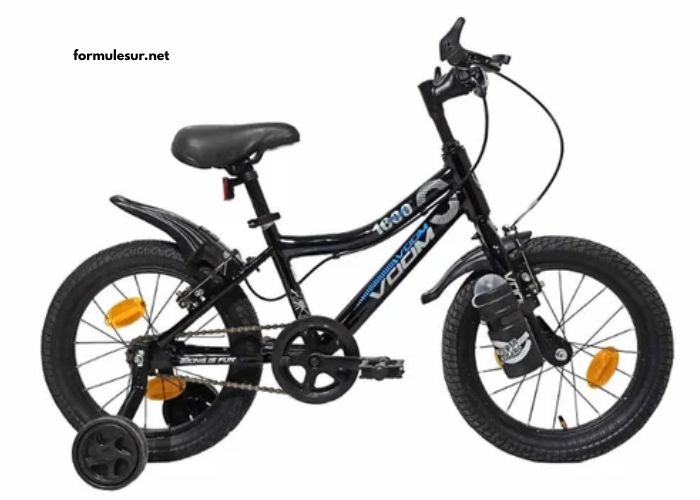Technology is evolving faster than ever, and 2025 is poised to be a landmark year for groundbreaking innovations. From artificial intelligence to space tech, the future is arriving at lightning speed. Whether you’re a tech enthusiast, entrepreneur, or a casual observer, staying updated with the latest advancements is crucial to staying ahead.
In this comprehensive article, we explore the top tech innovations you should know in 2025. These innovations are not just futuristic—they’re already shaping industries and influencing the way we live, work, and interact.
The Age of Intelligent Automation
AI-Powered Everything
Artificial Intelligence (AI) continues to dominate the tech space, but in 2025, it’s becoming more ubiquitous and context-aware. AI is now embedded in every corner of life—from smart homes to healthcare diagnostics.
Key AI trends in 2025 include:
-
Generative AI 2.0: Tools like ChatGPT and DALL·E have matured into industry-grade solutions that automate complex business tasks, from code generation to legal analysis.
-
AI Personal Assistants: Far beyond Siri or Alexa, next-gen assistants are contextually aware, predictive, and capable of nuanced conversation.
-
AI in Healthcare: AI is now diagnosing diseases with higher accuracy than human doctors in many fields, especially in radiology, dermatology, and ophthalmology.
Hyperautomation in Business
Hyperautomation refers to using AI, robotic process automation (RPA), and low-code tools to automate business processes end-to-end. By 2025, enterprises are achieving:
-
50% faster process execution
-
Up to 70% cost savings
-
Real-time operational insights
Quantum Computing Goes Commercial
From Research Labs to Real-World Applications
2025 marks the early commercial phase of quantum computing. Giants like IBM, Google, and startups like Rigetti are offering Quantum-as-a-Service (QaaS) platforms accessible to enterprises.
Key breakthroughs:
-
Error correction capabilities improved drastically.
-
Quantum simulations being used for drug discovery and material science.
-
Financial modeling enhanced by quantum algorithms in hedge funds and banking.
Web3 and Decentralization Matures
Beyond Crypto: Real Use Cases
Web3, often associated with cryptocurrencies, has matured in 2025. It’s now more focused on real-world decentralized applications (dApps), data ownership, and transparent governance.
What’s new in 2025:
-
Decentralized Identity (DID) is mainstream, enabling users to control and share personal data securely.
-
DAO-driven organizations are replacing traditional company structures in creative and community-driven sectors.
-
Web3 Social Platforms offer censorship-resistant alternatives to big tech social media.
Spatial Computing and Mixed Reality
Apple Vision Pro and Beyond
2025 is seeing rapid adoption of spatial computing devices like Apple Vision Pro, Meta Quest 4, and Microsoft’s HoloLens 3. These platforms combine AR (Augmented Reality) and VR (Virtual Reality) to create Mixed Reality (MR) experiences.
Key innovations:
-
3D collaboration platforms for remote work and training.
-
Immersive education with real-time simulations and virtual labs.
-
Virtual storefronts and showrooms transforming e-commerce.
The Rise of Ambient Computing
Smart Environments Everywhere
Ambient computing makes devices and systems work seamlessly in the background, responding intuitively to human needs. In 2025, your environment is smart—homes, offices, even public spaces.
Examples:
-
Smart homes that adjust temperature, lighting, and music based on mood.
-
Offices that schedule meetings, optimize layouts, and even reduce carbon footprints automatically.
-
Urban areas with IoT-connected infrastructure improving traffic, safety, and energy use.
Sustainable Tech and Green Innovation
Eco-Friendly is the New Default
Climate change has propelled the tech industry to prioritize sustainability. In 2025, most innovations come with built-in green tech principles.
Trends to watch:
-
Carbon-neutral data centers powered by renewable energy.
-
E-waste recycling robots that efficiently sort and repurpose electronic components.
-
Biodegradable electronics and sustainable packaging becoming standard.
6G and the Next Internet Leap
Beyond 5G: Ultra-Connected Everything
While 5G is still being rolled out in some areas, 6G development is in full swing in 2025. It promises 100x faster speeds and even more reliable connections.
Expected impacts:
-
Real-time holographic communication
-
Autonomous drone swarms for delivery and surveillance
-
Tactile internet for remote surgery, education, and entertainment
Robotics and Human Augmentation
From Helpers to Co-Workers
Robotics is transitioning from industrial environments to everyday use. Robots are now:
-
Assisting in surgeries with pinpoint precision
-
Serving in restaurants and hotels
-
Helping elderly and differently-abled individuals at home
Human augmentation is another massive leap. Wearables and exoskeletons are boosting strength, aiding recovery, and even enhancing cognition with neural implants.
Personalized Medicine and Biotech Breakthroughs
Health Tech Becomes Tailored
Gone are the days of one-size-fits-all healthcare. In 2025, we’re in the age of precision medicine.
Innovations include:
-
CRISPR 3.0 gene editing, allowing real-time corrections of genetic disorders
-
Digital twins of patients for testing treatments in virtual simulations
-
Smart drug delivery systems activated by biosensors
Edge AI and Federated Learning
Smarter, Safer, and Faster
In 2025, Edge AI enables devices to process data locally without needing the cloud, enhancing speed, privacy, and security.
Federated learning trains AI models without sending sensitive data to a central server, ideal for sectors like finance and healthcare.
Benefits:
-
Lower latency
-
Reduced bandwidth costs
-
Enhanced compliance with data protection regulations
Cybersecurity Innovations
Zero Trust and AI-Based Security
As tech becomes more advanced, so do cyber threats. 2025’s cybersecurity approach is heavily focused on Zero Trust Architecture and AI-powered defense systems.
Top developments:
-
AI threat hunting and prediction tools
-
Blockchain-secured identity management
-
Quantum encryption for top-level data protection
Smart Mobility and Autonomous Transport
Transportation is Getting Smarter
Autonomous vehicles are no longer a novelty. By 2025:
-
Self-driving taxis and buses are operational in many cities.
-
Flying taxis and electric vertical take-off and landing (eVTOL) crafts are being piloted.
-
Hyperloop systems are in testing stages with successful early trials.
These innovations reduce commute time, lower emissions, and increase safety.
Space Tech and the Final Frontier
Commercial Space is Booming
Space exploration is no longer exclusive to government agencies. In 2025:
-
Space tourism has taken off with private companies like SpaceX, Blue Origin, and Virgin Galactic.
-
Moon colonization projects are in early infrastructure phases.
-
Asteroid mining is being tested as a new source of rare materials.
These developments are unlocking new economic opportunities and scientific discoveries.
Ethical Tech and Responsible Innovation
Building a Better Digital Future
With great power comes great responsibility. In 2025, ethical tech is more than a buzzword—it’s a necessity.
Trends shaping responsible innovation:
-
Bias audits in AI systems to ensure fairness
-
Transparent data usage policies
-
Global tech regulations for AI, data privacy, and surveillance
Consumers demand ethical alignment, and businesses are responding accordingly.
Final Thoughts: The Tech Horizon of 2025
As we progress through 2025, one thing is certain: technology is not slowing down. The innovations we see today were once the stuff of science fiction, and now they are reshaping every facet of our existence—from how we work and communicate to how we heal and travel.
Staying informed about these advancements is more than just a tech geek’s hobby—it’s essential for adapting to the future of work, education, health, and society as a whole.
Frequently Asked Questions (FAQs)
Q1. What is the most disruptive tech trend of 2025?
Answer: AI-powered automation and generative AI are currently the most disruptive, impacting everything from content creation to diagnostics.
Q2. Is quantum computing available for everyday use?
Answer: Not yet for consumers, but enterprises are accessing quantum computing through cloud-based Quantum-as-a-Service (QaaS) platforms.
Q3. How is sustainability driving innovation in 2025?
Answer: Green tech is integrated into everything—from energy-efficient chips to carbon-neutral infrastructure, reflecting a strong push toward environmental responsibility.
Q4. What is ambient computing?
Answer: It’s the seamless integration of computing into the environment around us, enabling interactions without direct input—like lights adjusting based on your mood or voice.
Q5. Will Web3 replace the current internet?
Answer: Web3 is not replacing the internet but evolving it into a more decentralized, user-owned ecosystem.





